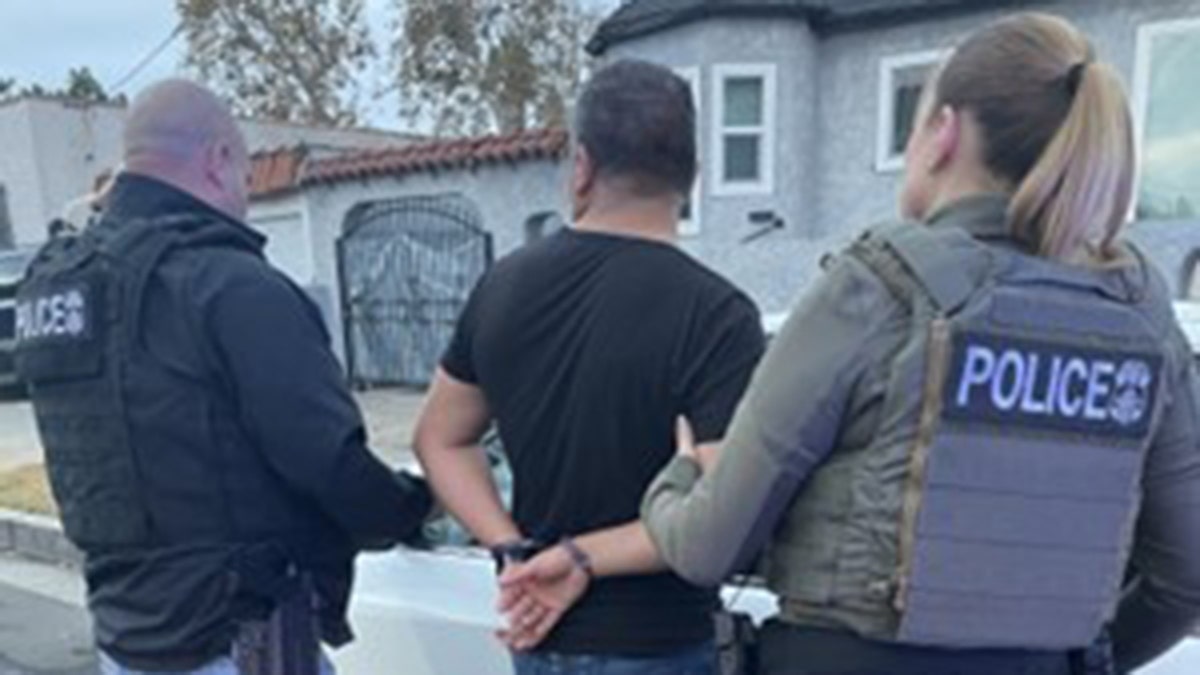Border sheriff ignores county’s new policy that blocks cooperation with ICE immigration enforcement
The San Diego County sheriff says her office will not change its practices with Immigration and Customs Enforcement (ICE) after the county’s board of supervisors moved to further restrict that cooperation ahead of the Trump administration taking office next year.
“The sheriff’s office will not change its practices based on the board resolution and policy that was passed at today’s meeting,” Sheriff Kelly Martinez’s office said in a statement. “The board of supervisors does not set policy for the sheriff’s office. The sheriff, as an independently elected official, sets the policy for the sheriff’s office.”
The statement came after a 3-1 vote by the San Diego County Board of Supervisors on a resolution to restrict ICE cooperation with local law enforcement.

The resolution says the county will not provide assistance or cooperation to ICE, “including by giving ICE agents access to individuals or allowing them to use County facilities for investigative interviews or other purposes, expending County time or resources responding to ICE inquiries or communicating with ICE regarding individuals’ incarceration status or release dates, or otherwise participating in any civil immigration enforcement activities.”
When ICE is aware of suspected illegal immigrants in local or state custody, it will file a detainer with law enforcement, typically requesting that the agency is notified ahead of the suspected illegal immigrants’ release and, in some cases, that they be held until ICE can take custody of them.
ICE says this helps detain illegal immigrants without having to go into communities and gets illegal immigrant offenders off the streets. Sanctuary proponents say that such policies chill cooperation between law enforcement and otherwise law-abiding illegal immigrants.
“When federal immigration authorities, including the Department of Homeland Security (DHS), U.S. Immigration and Customs Enforcement (ICE) and U.S. Border Patrol coerce local law enforcement to carry out deportations, family members are separated and community trust in law enforcement and local government is destroyed,” an overview of the resolution claims.
“Witnesses and victims who are undocumented or who have loved ones who are undocumented are afraid to come to the County for help, which includes calling local law enforcement. This puts the public safety of all San Diegans at risk.”
Proponents of the resolution say California’s sanctuary law has too many loopholes and still allows agencies to notify ICE of release dates and transfer some individuals into their custody.
CLICK HERE FOR MORE COVERAGE OF THE BORDER SECURITY CRISIS
It was a claim with which Martinez disagreed.

“As the sheriff of San Diego County, my No. 1 priority is protecting the safety and well-being of all residents of our diverse region. While protecting the rights of undocumented immigrants is crucial, it is equally important to ensure that victims of crimes are not overlooked or neglected in the process,” she said.
The San Diego County Sheriff is a nonpartisan office, but Martinez has identified as a Democrat personally.
CLICK HERE TO GET THE FOX NEWS APP
“Victims include undocumented individuals. These vulnerable individuals express to me that their legal status is used as a weapon against them when offenders from their community victimize them,” she said. “We must protect the well-being of individuals, including those who are undocumented, which requires a careful approach that upholds the principles of justice, fairness and compassion for all individuals involved.”
It comes ahead of what is expected to be a historic mass deportation campaign by the incoming Trump administration. Incoming border czar Tom Homan has said no one is off the table when it comes to deportations, although public safety threats will be the priority.
